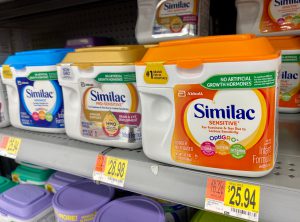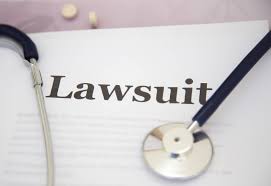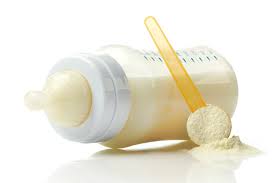 In February 2002, Abbot Laboratories recalled Similac®, Alimentum®, and EleCare® after consumer complaints of bacterial contamination causing severe illness in infants. The Food and Drug Administration (“FDA”) is investigating complaints of infant illnesses in Minnesota, Texas, and Ohio. Four infants were hospitalized, and one of them died. The FDA believes Cronobacter may have contributed to the injuries. Cronobacter illnesses, which include sepsis and meningitis, are rare but lethal for infants, according to the Center for Disease Control and Prevention (“CDC”). Abbot Labs says that it tests for pathogens including Cronobacter and salmonella before releasing its products into the marketplace. The problem, says the CDC, is that infant formula can’t be sterilized. Bacteria can infiltrate the formula powder if contaminated raw materials are used to make the formula or if it touches a contaminated surface during the manufacturing process. The agency says that the formula can also be contaminated in consumer homes.
In February 2002, Abbot Laboratories recalled Similac®, Alimentum®, and EleCare® after consumer complaints of bacterial contamination causing severe illness in infants. The Food and Drug Administration (“FDA”) is investigating complaints of infant illnesses in Minnesota, Texas, and Ohio. Four infants were hospitalized, and one of them died. The FDA believes Cronobacter may have contributed to the injuries. Cronobacter illnesses, which include sepsis and meningitis, are rare but lethal for infants, according to the Center for Disease Control and Prevention (“CDC”). Abbot Labs says that it tests for pathogens including Cronobacter and salmonella before releasing its products into the marketplace. The problem, says the CDC, is that infant formula can’t be sterilized. Bacteria can infiltrate the formula powder if contaminated raw materials are used to make the formula or if it touches a contaminated surface during the manufacturing process. The agency says that the formula can also be contaminated in consumer homes.
 Millions of parents, including myself, rely on infant formula made by Abbot Laboratories. It is downright scary to think that you, as a parent, can be the instrument of your child’s untimely death by giving them baby formula. Although the product recall was triggered by complaints from Texas, Ohio, and Minnesota, infant illnesses have cropped up closer to home in Miami. A Fort Lauderdale law firm has initiated a class action suit against Abbot Laboratories for products liability, alleging that the company put children at risk of injury and bacterial infection with its toxic baby formula products Similac®, Alimentum®, and EleCare®. The lawsuit was filed on February 20, 2022, on behalf of a Miami infant who was infected with Salmonella after being fed tainted Alimentum®. The plaintiffs allege that they would have never given it to their child had they known of the danger.
Millions of parents, including myself, rely on infant formula made by Abbot Laboratories. It is downright scary to think that you, as a parent, can be the instrument of your child’s untimely death by giving them baby formula. Although the product recall was triggered by complaints from Texas, Ohio, and Minnesota, infant illnesses have cropped up closer to home in Miami. A Fort Lauderdale law firm has initiated a class action suit against Abbot Laboratories for products liability, alleging that the company put children at risk of injury and bacterial infection with its toxic baby formula products Similac®, Alimentum®, and EleCare®. The lawsuit was filed on February 20, 2022, on behalf of a Miami infant who was infected with Salmonella after being fed tainted Alimentum®. The plaintiffs allege that they would have never given it to their child had they known of the danger.
In a class-action lawsuit for products liability (assuming the class can be certified), plaintiffs can sue under three theories: negligence, strict products liability, and breach of warranty. Based on the allegations in the Miami case, it appears that the plaintiffs are proceeding under a negligence theory. In that case, the plaintiffs will have to prove duty, breach, causation, and damages. A commercial manufacturer, distributor, retailer, or seller of a product owes a duty of reasonable care to any foreseeable plaintiff. Plaintiffs can show that Abbot breached that duty by arguing that had the defendant exercised reasonable care in the inspection or sale of the baby formula product, the defect would have been discovered, and the plaintiff would not have been harmed. The plaintiff also can invoke the doctrine of res ipsa loquitur if the defect could not have occurred without the manufacturer’s negligence. The plaintiff must also establish causation by showing that Abbot Labs was both the actual and proximate cause of their injuries. The plaintiffs may run into difficulties proving this element because, according to the CDC, Cronobacter is rare. In addition, preliminary investigations by Abbot have failed to trace any pathogens back to its manufacturing process. Therefore, there will be an evidentiary battle to establish that Abbot Laboratories was the “but for” cause of the infant’s injuries. Finally, the plaintiffs will be able to establish the damages element by pointing to the personal injury to their children, assuming the causation element can be met. Parents have been mortified to discover that an everyday product relied upon to feed their babies has been alleged to be the instrument of severe harm. While the investigation is still ongoing and the lawsuit is pending, desperate parents are now apprehensive each time they go to the grocery store.



 In February 2002, Abbot Laboratories
In February 2002, Abbot Laboratories  Millions of parents, including myself, rely on infant formula made by Abbot Laboratories. It is downright scary to think that you, as a parent, can be the instrument of your child’s untimely death by giving them baby formula. Although the product recall was triggered by complaints from Texas, Ohio, and Minnesota, infant illnesses have cropped up closer to home in Miami. A
Millions of parents, including myself, rely on infant formula made by Abbot Laboratories. It is downright scary to think that you, as a parent, can be the instrument of your child’s untimely death by giving them baby formula. Although the product recall was triggered by complaints from Texas, Ohio, and Minnesota, infant illnesses have cropped up closer to home in Miami. A 